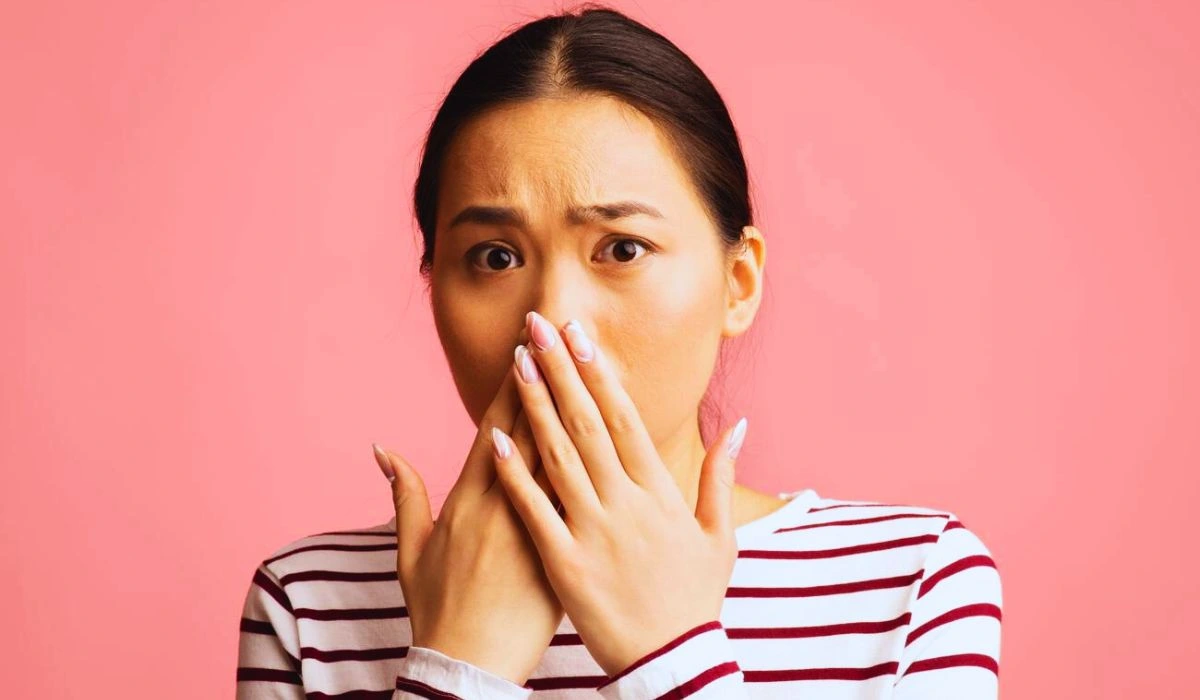Hiccups are involuntary contractions of the diaphragm – the muscle that separates your chest from your abdomen and plays an important role in breathing. The diaphragm is controlled by the phrenic nerve, which runs from the neck to the diaphragm.
When the phrenic nerve gets overexcited or irritated, it can cause a spasm and result in a hiccup. Nearly everyone gets hiccups from time to time. However frequent hiccups can indicate underlying medical conditions.
In this article, we’ll explore what causes hiccups, if they can signal serious medical issues, and how to get rid of them.
Why Do People Hiccup?

There are several potential causes of hiccups, including:
- Eating or drinking too fast – Consuming food or beverages rapidly can cause air to be trapped in the stomach, resulting in hiccups. Eating and drinking slowly can help prevent this.
- Sudden excitement or stress – Strong emotions and anxiety can trigger hiccups in some people by overstimulating the phrenic nerve.
- Irritation of the diaphragm – Inflammation or distention of organs near the diaphragm, such as the stomach or esophagus, may cause hiccups.
- General anesthesia – Some medications used for anesthesia during surgery can cause hiccups as a side effect.
- Hot and spicy foods – Foods with a lot of heat or spice may irritate the esophagus and trigger hiccups.
Also Check: How To Stop Brain Zaps From Anxiety? Learn How To Zap Them Back!
Understand Hiccups Causes
Some of the more common causes of hiccups include:
- Gastroesophageal reflux disease (GERD) – Stomach acid backing up into the esophagus can irritate the phrenic nerve and diaphragm, triggering hiccups.
- Eating disorders – Conditions like bulimia or anorexia may be associated with frequent hiccups.
- Hiatal hernia – This condition causes the stomach to protrude through the diaphragm, which can irritate the phrenic nerve.
- Abdominal surgery – Hiccups may occur after abdominal surgery, likely from irritation of the phrenic nerve.
- Stroke – Hiccups can sometimes be a sign of stroke if they occur along with facial muscle weakness on one side.
- Enlarged spleen – An abnormally large spleen may press on the diaphragm and cause hiccups.
- Uremia – The buildup of waste products in the blood due to kidney failure can trigger hiccups.
Can Hiccups Be A Sign Of Something Serious?
For the most part, occasional hiccups are harmless and resolve on their own. But in some cases, chronic hiccups lasting hours to days can indicate an underlying medical issue that requires treatment. Potential serious causes of prolonged hiccups include:
- Central nervous system disorders – Tumors, infections, or trauma affecting the brainstem or phrenic nerve can cause persistent hiccups.
- Metabolic disturbances – Severe cases of diabetes, kidney failure, or liver disease may trigger stubborn hiccups.
- Gastrointestinal disorders – Peptic ulcers, gastritis, GERD, bowel obstruction, or esophageal cancer could lead to extended bouts of hiccups.
- Respiratory issues – Pneumonia, asthma, or tumors in the chest can sometimes cause recurring hiccups.
- Cardiac causes – Heart attack, pericarditis, or atrial fibrillation may be accompanied by hiccups.
- Medication side effects – Certain medications, like steroids, antidepressants, and opioids have been linked to hiccups.
If hiccups last longer than 48 hours, it’s important to see a doctor to identify any underlying medical problem that may need treatment. Persistent hiccups can disrupt sleep, nutrition, and quality of life if not addressed.
How To Stop Hiccups Effectively?

For occasional hiccups that tend to go away on their own, home remedies may help shorten their duration. Some methods to alleviate hiccups include:
- Holding your breath – Take a deep breath, hold it for 10 seconds, then slowly exhale. Repeat several times. This helps reset the diaphragm.
- Sipping ice-cold water – The cold temperature and act of swallowing can disrupt the hiccup reflex arc.
- Biting on a lemon – The sour taste may have a stimulating effect and halt spasms.
- Using smelling salts – Inhaling the strong vapors irritates the nasal cavity, which may inhibit hiccups.
- Massaging the vagus nerve – Gently rubbing the back of the neck may calm an irritated vagus nerve.
- Adjusting body position – Lying on your side, leaning forward, and pulling your knees to your chest may alleviate hiccups.
For persistent or severe hiccups, your doctor may prescribe medication such as chlorpromazine, baclofen, or metoclopramide to help stop muscle spasms of the diaphragm. As a last resort, some procedures like phrenic nerve block or diaphragm pacing may be used for stubborn hiccups.
Read More: 5 Foods To Avoid For A Longer Life: Eat For A Longer Lifespan
Conclusion
Hiccups are generally harmless and fleeting. But frequent or prolonged hiccups could be a red flag for underlying illness. Pay attention to any bothersome hiccups and see your doctor if they don’t resolve within 48 hours.
With proper diagnosis and treatment of any medical condition causing chronic hiccups, you can find relief and prevent complications. Try home remedies first for occasional hiccups, but seek medical advice if symptoms are severe, persistent, or affecting your quality of life.
FAQs
A: Occasional, short-term hiccups are not dangerous and usually resolve on their own. However, recurring, long-lasting hiccups can disrupt eating, sleeping, and breathing. Persistent hiccups may be a sign of a serious underlying medical issue that requires diagnosis and treatment.
A: Spicy, acidic, very hot, or very cold foods can irritate the esophagus and trigger hiccups in some people. Eating too fast and swallowing air can also cause hiccups. Slow down when eating and avoid large bites to prevent hiccups.
A: Yes, frequent hiccups can sometimes be a symptom of gastroesophageal reflux disease (GERD). Stomach acid backing up into the esophagus irritates the nearby phrenic nerve and diaphragm, which may trigger hiccups. Other GERD symptoms include heartburn, regurgitation, chest pain, and nausea.
A: See your doctor if hiccups last more than 48 hours, are severe and interfere with eating/sleeping, or are accompanied by other symptoms like vomiting, chest pain, or trouble breathing. Persistent hiccups may require medication or testing to diagnose an underlying condition.
A: Yes, hiccups are very common and normal in newborns, especially after feeding. Infant hiccups are harmless and typically resolve on their own without intervention. If hiccups interfere with feeding or occur with other symptoms, talk to your pediatrician.

